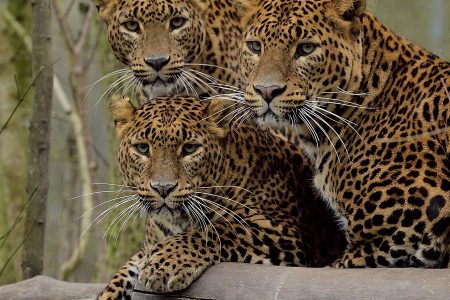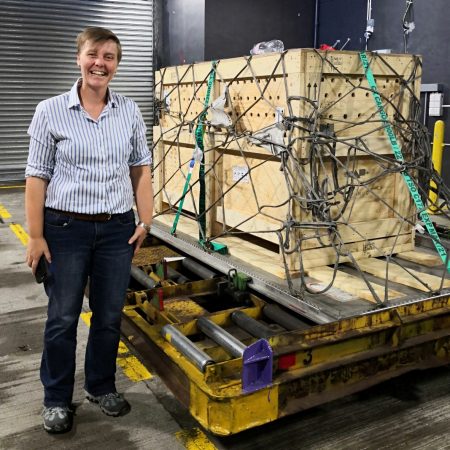Cathay Pacific welcomed a rare member of the big cat family to Hong Kong in January. Yakalla, a Sri Lankan leopard, made a six-hour stopover at the Large Animal Handling Centre in the Cathay Cargo Terminal in January, en route to Canberra from Paris.
Seven year-old Yakalla is joining an international breeding programme to help conserve the species, and to keep the gene pool as wide as possible. As with many endangered animals, destruction of habitat is putting real pressure on the species.
Jayne Weller, Senior Veterinarian at the National Zoo, Canberra, was in Hong Kong to check on Yakalla before she embarked on the final leg of her journey to Sydney and the three-hour trip by road to Canberra. ‘We’re the first zoo in Australia to receive one of these animals,’ she said. ‘The plan is that several zoos will receive them for the breeding programme. Yakalla has come from France, and the male we’re receiving will come from Spain.’




